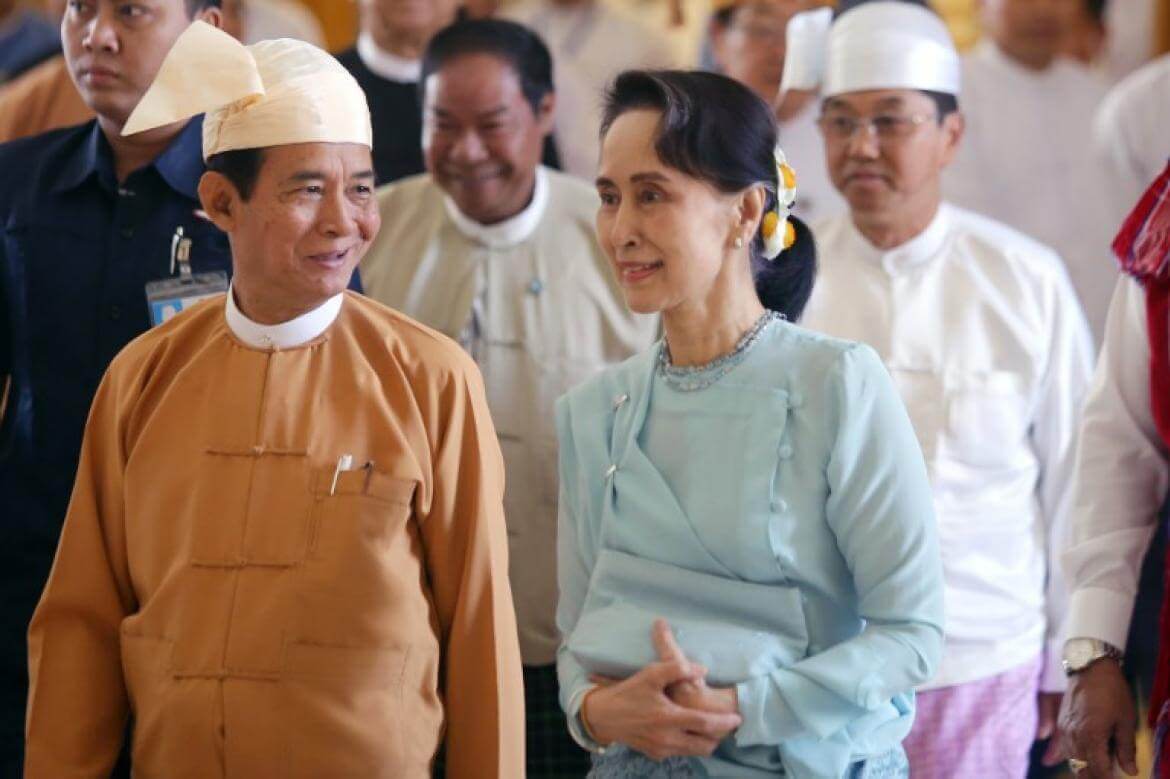A Myanmar court put ousted leader Aung San Suu Kyi on her first official trial on charges of incitement, to which she pleaded not guilty, her lawyer Khin Maung Zaw said on Tuesday. Ousted president Win Myint also pleaded not guilty to the same charge.
The lawyer said Suu Kyi “seemed to be in good health,” a week after she failed to show up at a separate court hearing due to health concerns.
The former leader of Myanmar has been battling numerous superficial charges that were pinned on her to curb opposition in the aftermath of the putsch.
In February, Khin Maung Zaw announced that she was charged with “an extra [violation] under the Natural Disaster Management law.” The charge has been used to prosecute people who have violated the country’s COVID-19 restrictions.
In this regard, the court on Tuesday heard the prosecution’s testimony about Suu Kyi defying the country’s coronavirus restrictions during last year’s general elections. Judge Maung Maung Lwin, who presides over the court in Naypyitaw’s Zabuthiri Township, formally announced the charge against Suu Kyi, Win Myint, and Naypyitaw mayor Myo Aung. The junta specifically created the court to process cases against the deposed leaders.
Furthermore, Suu Kyi has been accused of violating the country’s Import and Export Law over the possession of “illegally” imported walkie-talkies that were not registered. Next month, the former leader is likely to face a new trial on corruption charges. In addition, she has been accused of violating the country’s colonial-era secrecy law, although she is yet to face trial on this charge.
Each charge carries a maximum of three years in prison.
Since the 76-year-old Nobel laureate was put under house arrest in February, meetings with her lawyers and court appearances have been her only link to the outside world.
Myanmar spiralled into chaos on February 1 after the country’s military seized control of the government for one year, and several high-level politicians, including State Counsellor Suu Kyi and President Win Myint, were placed under house arrest. The coup was attributed to the failure of the government to act on the military’s questionable claims of voter fraud in the election conducted last November when the National League for Democracy (NLD) won in a landslide victory with 83% votes. Due to the election result, the military saw the NLD eroding its influence and sought to reinforce dominance via a coup.
Since then, over 1,000 civilians protesting the coup have been killed by security forces.
Ousted Myanmar Leaders Suu Kyi and Win Myint Plead Not Guilty in Incitement Trial
Myanmar’s ousted leaders Aung San Suu Kyi and Win Myint pleaded not guilty to the junta’s charges of incitement.
September 22, 2021

SOURCE: FRONTIER MYANMAR
